In 1777, British troops raided the Continental Army's storehouses in Connecticut and burned vast caches of food — but when one general expressed his concern in a letter to George Washington, the future president responded with steadfast resolve and optimism.
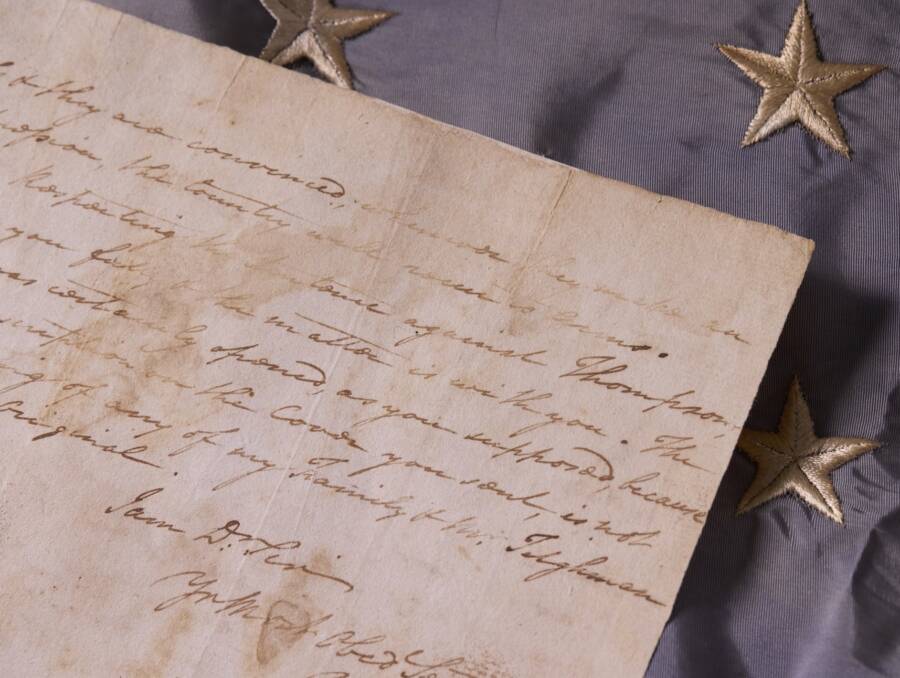
Raab CollectionA part of the 1777 letter written by George Washington at his field headquarters in New Jersey.
In May 1777, during the Revolutionary War, a brigadier general anxiously wrote George Washington a letter about a British raid that had just occurred in Danbury, Connecticut. Though the British had triumphed, Washington responded with a letter that expressed steadfast confidence in the American cause. This inspiring letter, signed by Washington himself, is now up for sale — and is expected to fetch $150,000.
Written during a turning point in the war, this rare letter represents a powerful demonstration of George Washington’s belief that his ragtag forces could triumph over the fearsome might of the British.
The British Raid In Connecticut That Prompted George Washington’s Letter
George Washington wrote his letter on May 7, 1777, roughly two weeks after the British raid on a supply depot in Danbury, Connecticut.
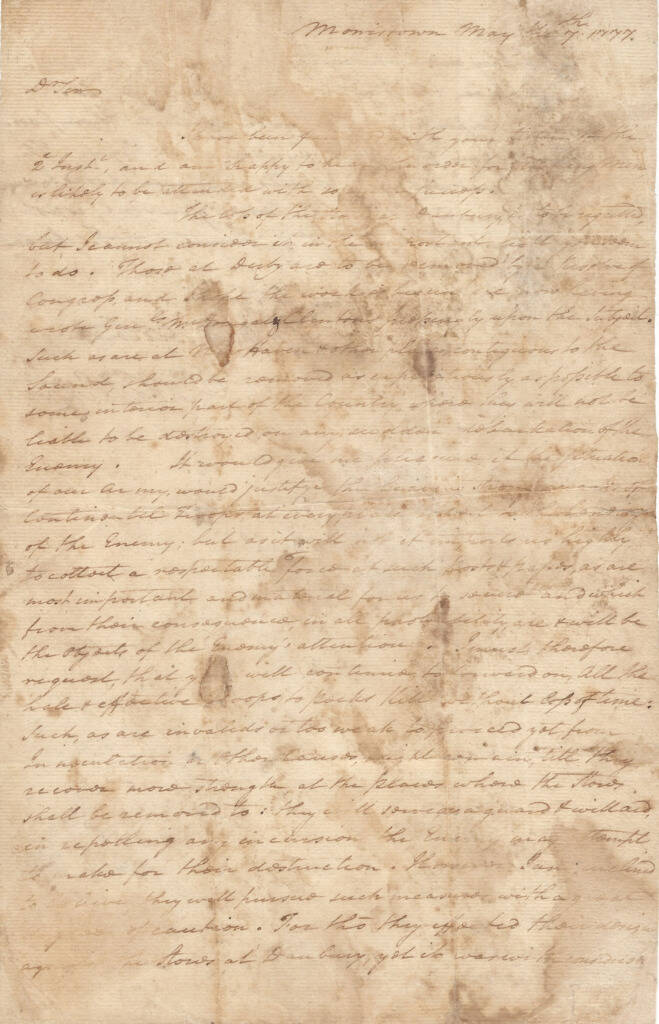
Raab CollectionThe front of George Washington’s letter to Brigadier General Samuel Holden Parsons.
On April 26, British forces had raided the Danbury depot and burned colonial storehouses and equipment. During their retreat, the British met resistance from American militia in the nearby countryside (led by Brigadier General Benedict Arnold) but managed to make their way back to their ships and claim victory. To Brigadier General Samuel Holden Parsons, the event was very concerning — and an ominous portent regarding the tides of the war.
“The Loss of our Stores at Danbury is an Event very Alarming to the Country,” the worried Parsons wrote to George Washington on May 2. “I hope the Effect will not be fatal to the Army: by the Examination of Sundry disaffected Persons: we have Reason to believe a Second Descent is soon to be made for destroying our little Magazines in Derby, & New Haven.”
In the face of Parsons’ concern, however, Washington expressed confidence.
“Recur To Arms”: George Washington’s Letter Preaches Optimism
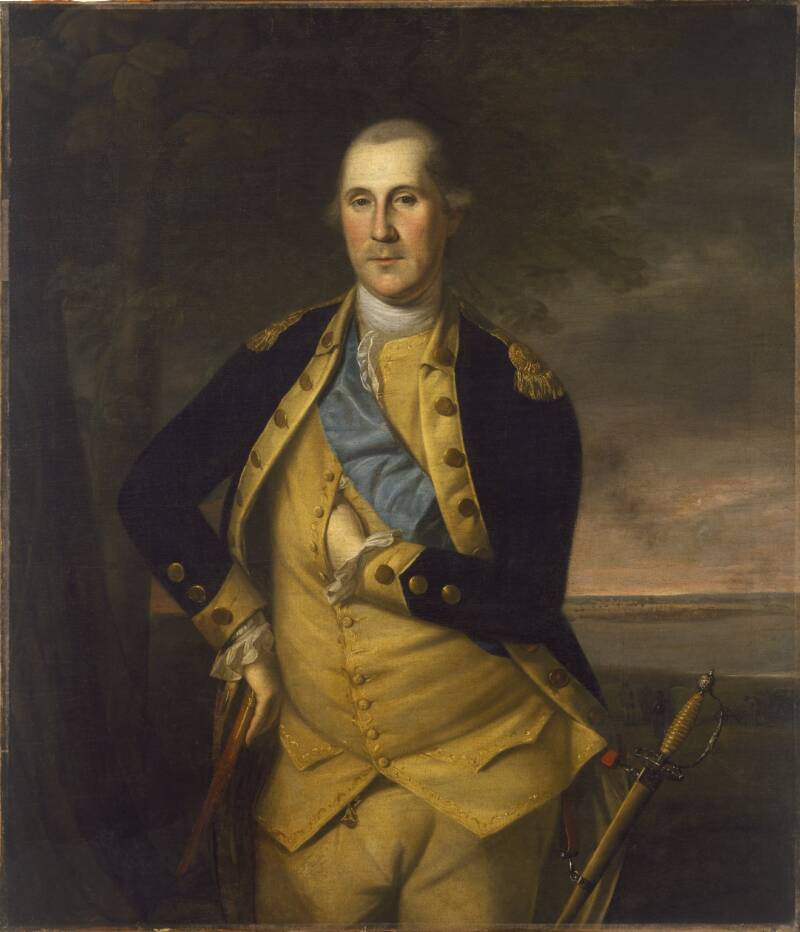
Public DomainA portrait of George Washington. 1776.
Sitting down to write a response to Parsons (probably first dictated to an aide), George Washington brushed aside his colleague’s concerns.
“The loss of the flour at Danbury is to be regretted, but I cannot consider it in the important light you seem to do,” George Washington wrote.
Rather, Washington saw something inspirational in the Danbury raid. Though the British had destroyed the depot and managed to escape, they had done so at great personal cost — all thanks to the citizens and militia who had risen up as the British made their way through the countryside afterward.
“I am inclined to believe they [the British] will pursue such measures with a great degree of caution,” Washington told Parsons. “For tho’ they afforded themselves the stores at Danbury, yet it was with considerable loss and they are convinced whenever they make an impression, the Country will recur to arms.”
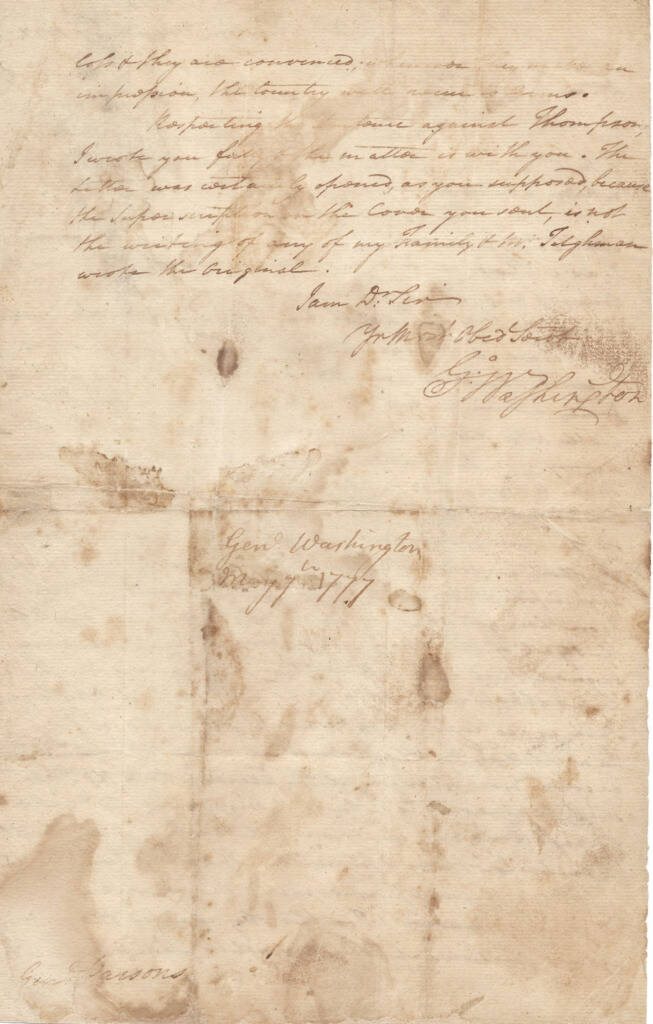
Raab CollectionThough likely dictated to an aide, George Washington signed the letter himself.
After touching on a few other matters, including smallpox inoculations for the troops, Washington signed the letter: “I am Dear Sir, your most obedient servant, G. Washington.”
Indeed, by May 1777, George Washington had reason to be optimistic.
The Place Washington’s Letter Holds In American History
When the Revolutionary War broke out in 1775, George Washington initially struggled to muster up an army powerful enough to fight back against the British. In 1776, he had been forced to retreat from New York City, and was generally plagued by a lack of supplies, insufficient troops, and a reluctant Congress. But things had started to change at the end of that year.
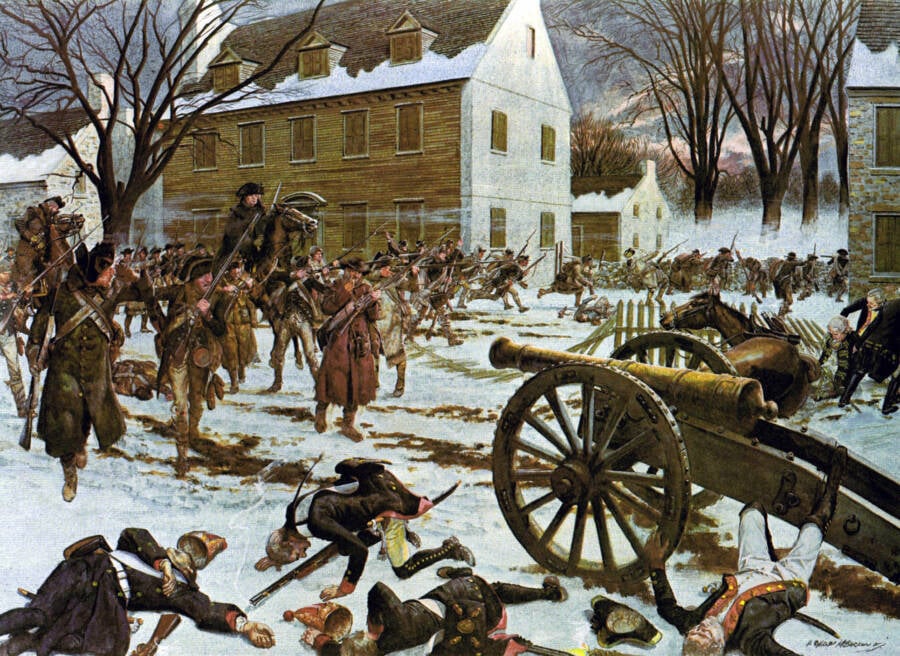
Public DomainA painting of the Battle of Trenton, a small but significant victory for George Washington and his men.
In December 1776, Washington triumphed at the Battle of Trenton, and followed this victory with the Battle of Assunpink Creek and the Battle of Princeton. The tide seemed to be turning in his favor, which may have informed Washington’s confidence in his letter to Parsons. Even when he wrote to Congress about the raid, Washington stated that “the damage we sustained at Danbury was not so great . . . the chief loss [being tents].”
His confidence, captured in the letter, thus illuminates a crucial moment in early American history.
“The significance of this letter is [that] George Washington reveals that he was less concerned by the losses incurred during a British raid than he was buoyed by the fact that the colonists rose up to defend themselves,” Nathan Raab, the president of the Raab Collection, which is selling the letter, told All That’s Interesting. “He believed that the British had learned a lesson from this — that ‘the country will recur to arms’ when next attacked. That spirit embodies the American Revolution, which makes this letter quite special.”
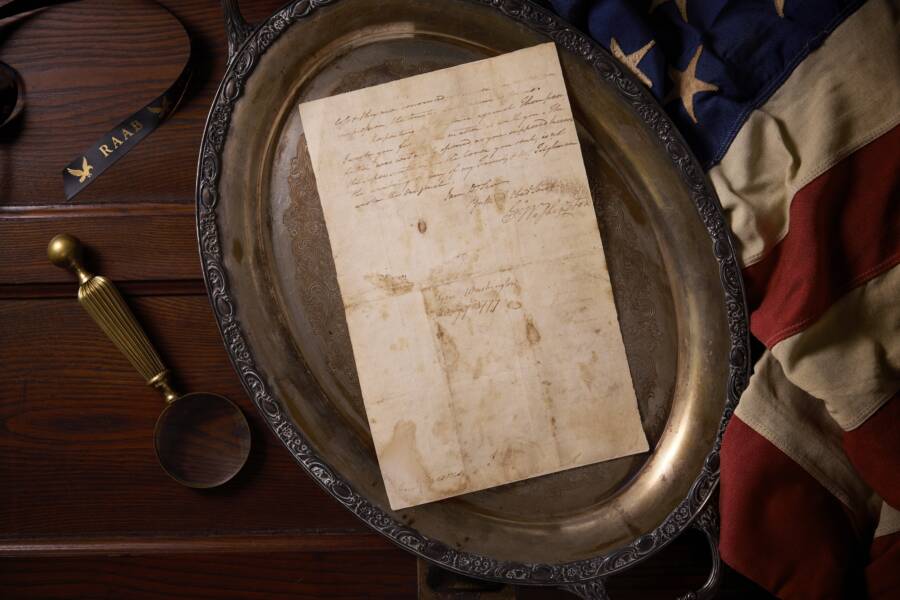
Raab CollectionThe letter is a rare piece of American history.
Not only that, Raab continued, but the letter itself is a rare artifact.
“There’s only so many out there,” Raab explained to All That’s Interesting. “[T]he supply is decreasing as things enter major private collections and get sold to public ones. So they become rarer each year. A letter like this with this powerful, evocative statement reflecting on the essence of the American Revolution, they are very, very hard to find.”
The letter was posted for sale by the Raab Collection on President’s Day 2025, and is expected to fetch $150,000.
After reading about the 1777 letter written by George Washington that has gone up for sale, go inside the historical mystery of how exactly George Washington died. Then, discover the disturbing true history behind George Washington’s teeth.





